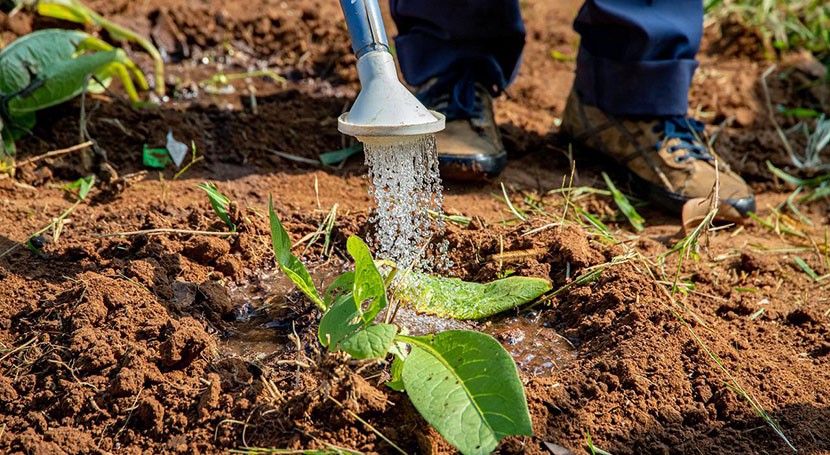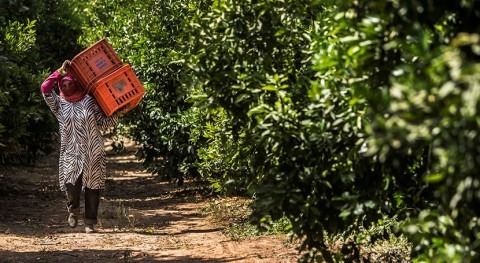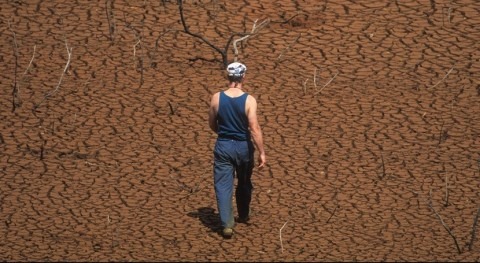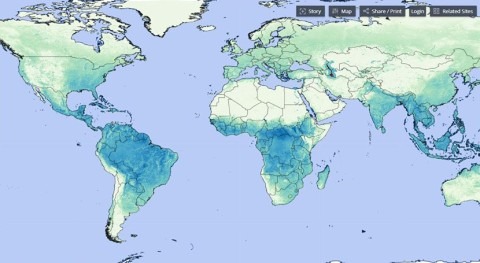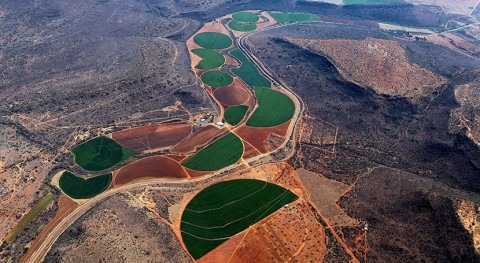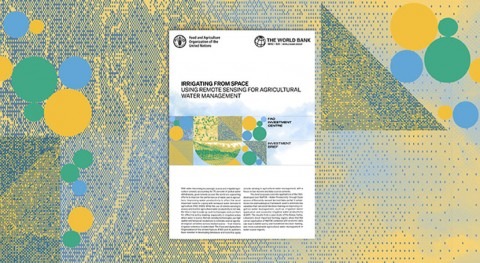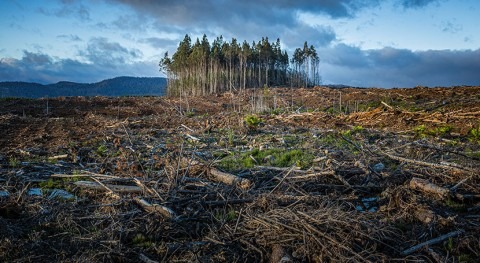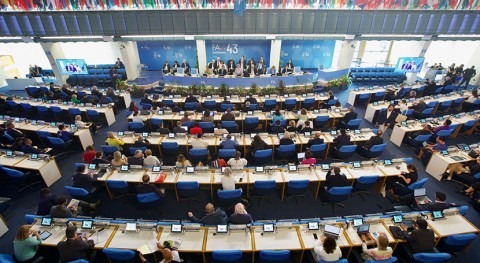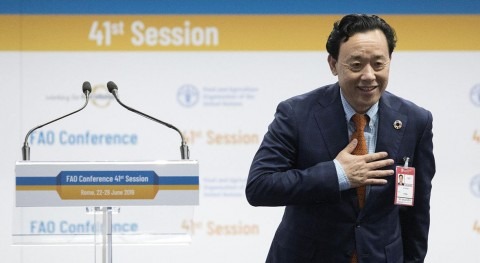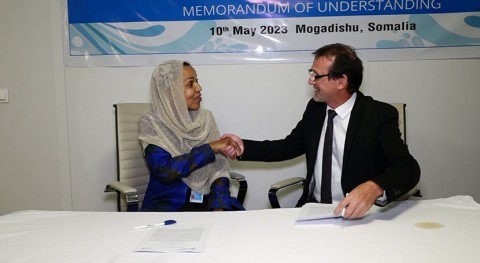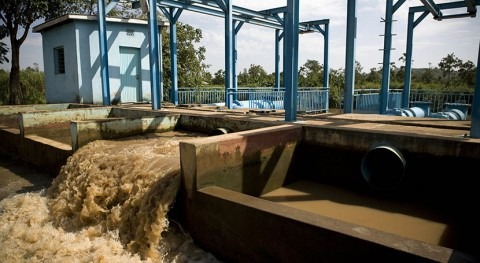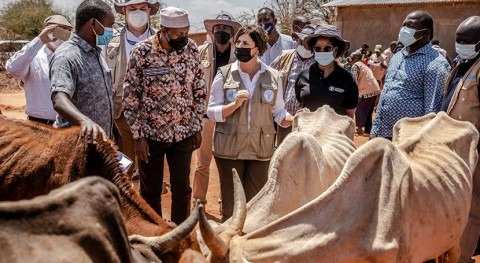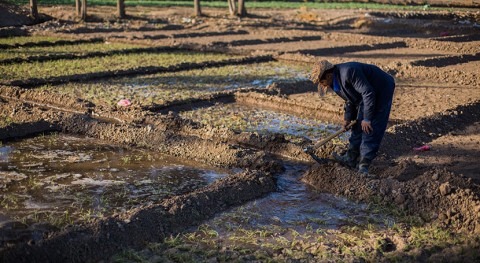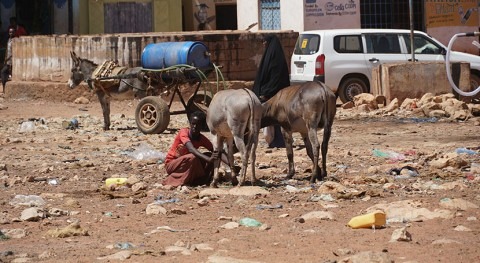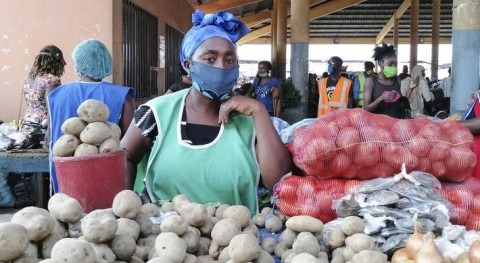Accessing water for her livestock and crops has been a lifelong struggle for Muhubo Warsame, who lives in Puntland’s Qardho District. The area’s main source of water is deep wells which require generators to pump ground water to the surface. The cost of fuel and maintenance of these systems is a burden for the community and requires money that would otherwise be spent on education for the children, and buying food, medicine and other essential items.
Thanks to the Integrated Land and Water Resources Management project, funded by the European Union and implemented by the Food and Agriculture Organization of the United Nations (FAO), Muhubo and her neighbours could maintain their livelihoods in a region affected by an increasing frequency of droughts and floods. These occur during the rainy season due to poor drainage and a lack of good harvesting methods. The project implemented through FAO’s Somalia, Water and Land Management (SWALIM) Programme built water harvesting and storage systems in Qardho, Puntland and in Xabaale, Somaliland using clean solar energy. These water assets have enabled rural farmers and pastoralists to collect and use seasonal rainwater for their animals and crops, thereby promoting continued production in the face of the ongoing worsening drought. “Thanks to this programme, we can pump water using the clean solar energy and the water in the dams are more accessible than from the wells,” said Mrs Warsame at her home in Qardho.
The new water harvesting and storage site in Qardho is just one component of this ambitious project aimed at improving inclusive water resource management at the community, regional and national levels. Within the project, the FAO SWALIM team is working closely with the line ministries to improve their institutional capacity to take on and lead water resource management through bottom-up approaches that involve active participation of local communities. FAO has supported the establishment of two Information Management Centres within line ministries in Puntland and Somaliland to support effective and informed management of land and water resources in the two regions.
The two centres are now fully operational with dedicated trained staff who generate land and water resources information and knowledge products. Besides a series of national level training, 22 representatives from the IMCs and line ministries of Somaliland and Puntland have been trained in Integrated Watershed Management in Egypt through a South-South Cooperation modality. Besides augmenting technical knowledge, the training also aimed at forging longer term cooperation between the IMCs and the Egyptian Regional Centre for Training and Water Studies.
Without strong water governance institutions in place, water resources can become scarce during the dry season, and dangerous in the rainy season. In Qardho, an urban centre with a population of over 120,000 people, seasonal heavy rains have always triggered heavy flooding with wide-ranging impacts on the city. Widespread flash flooding causes damage to infrastructure such as road networks, telecommunications, and settlements, and sometimes leads to population displacements, contamination of water sources, disrupted livelihoods and social services, and loss of lives.
“We expect this intervention to have a huge impact in the future because it will help us control the flooding, while making sure water is stored for future use when our animals and people need it during the dry season,” said Mohamed Muse Mohamed, the Director of Climate and Environment Change, Qardho, Puntland. He said the project efforts complemented other works by FAO in climate action and in curbing the recent desert locust menace that devastated livelihoods in many regions of the country.
The construction of watershed and water storage systems in Xabaale provides opportunities to communities to irrigate more land and increase their farm produce. “Generally, there is a huge shortage of water in this area and I think this intervention is what we needed. As a farmer, it gives me hope knowing that I can water my crops through irrigation made possible by this initiative,” said Saeded Hassan, a farmer in Xabaale.
“Climate change is posing serious challenges, especially in rural communities where recurrent extreme shocks threaten livelihoods. Efficient and sustainable management of natural resources is the first critical response to address those challenges. This project shows how efficient and effective management of water can mitigate the effects of shocks, preserve livelihoods, prevent displacement and contribute to improve food security in rural areas,” said Luca Pagliara, EU Programme Manager.
To complement these initiatives, FAO, in collaboration with line ministries, has trained communities on climate-smart farming and distributed irrigation kits to 4700 households.
“The significant investments in water management are a practical step in the right direction as rural communities are already facing the challenges posed by climate change in terms of extreme weather events,” said Ugo Leonardi, FAO’s Technical Adviser for SWALIM. “With the increasing frequency of droughts and floods, rural communities need smarter and environmentally friendly ways of managing their water resources to protect their livelihoods and improve food security for future generations,” he added.
With new ways to manage the scarce and valuable water resources in the different regions, rural Somalis such as Muhubo and Saeed will be able to better withstand harsh conditions and provide for their families. “With these storage facilities, we will now be able to water our crops during the dry seasons and farmers like me will have a better future to look forward to,” said Saeed.


